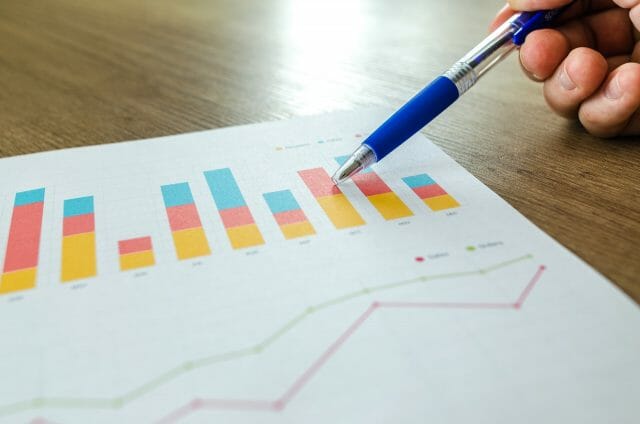Bloomberg’s findings of its New Economy global survey of 2,000 business professionals in 20 markets revealed that more than seven in 10 (74 percent) of business professionals are optimistic that the global system of trade can be restored, though only in the long term. In the midst of ongoing U.S.-China trade tensions, just over half of survey respondents (55 percent) say they believe that there will be more global trade in five years’ time. The IMF has warned that trade conflicts will cut global growth forecast this year from 3.9 percent to 3.7 percent.
With the rise of new economies, half of global business professionals believe a globalization model centered on multi-lateral free trade and open borders can be effective, though they say that the model must be tweaked to allocate the benefits more evenly across wider constituencies.
When asked to predict which countries will be the top three economic powerhouses in 10 years’ time, the majority selected China (86 percent), followed by the United States (70 percent) and Japan (36 percent).
“The New Economy survey provides a barometer into public sentiment towards a world economy in transition, a key theme which we will explore at the New Economy Forum in Singapore next month,” said Justin B. Smith, Chief Executive Officer, Bloomberg Media Group. “The survey reveals vast differences in perceptions for the future and highlights the need to bring together global leaders in business and government to find private-sector led solutions to some of the world’s biggest challenges.”
Global governance needs to be addressed urgently
Global governance (26 percent) was identified as the most critical global challenge requiring action. This sentiment was especially strong among respondents from India (39 percent), Philippines (35 percent), Malaysia (31 percent) and the Middle East (41 percent). Yet despite that expressed lack of confidence in government leadership, three quarters (75 percent) of respondents across the globe say they believe that world leaders and governments should be the primary force in driving initiatives to overcome global challenges. Only 10 percent of respondents think that businesses and the private sector should take the lead to address today’s global challenges.
Smith says the private sector has no choice but to tackle the issues arising from the emerging economic order, because governments are failing to act: “We think that private-sector businesses must take greater leadership in addressing key global challenges. New economies are playing an expanded role across trade and businesses today, and with a changing new world order, there is an urgent need for real dialogue and action on the long-term implications of this transitional moment.”
Divergence of Emerging vs Developed Market Views
Surprisingly, the survey showed there was greater confidence in the trade outlook in developing countries than in the developed world, where protectionist sentiment is rising. More than three in five (63 percent) business professionals from emerging markets say they believe that there will be more global trade in five years’ time. That view is especially pronounced among respondents from China (66 percent), Indonesia (74 percent), Philippines (76 percent), Thailand (80 percent) and India (71 percent). This contrasts with the view of those from developed markets, where just over one-third (36 per cent) expect more global trade in five years.
Tom Orlik, Bloomberg’s Chief Economist said: “One of the striking findings from the survey is the divergence between optimism about the global trade outlook in emerging markets, and pessimism in developed economies. This suggests that, for emerging markets, the costs of the current slide towards a trade war could be less than expected. If businesses retain that fundamental optimism about the outlook for trade, continued hiring and investment could propel growth forward, even as tariff barriers rise.”
Respondents in emerging markets are also more confident about the future and motivated to prepare for it than those in developed markets. 66 percent of respondents from emerging markets reported that they are learning new technologies compared to 43 percent in developed markets, 56 percent are upskilling and taking additional professional courses compared to 29 percent in developed markets. They also recognize the need to start new business ventures (35 percent) and to be more socially conscious about the environment (50 percent), as compared to respondents from developed countries (10 percent and 37 percent, respectively).
Technology drives the future of economies
While 60 percent of respondents overall say they are already learning new technologies as they prepare for the future, the rate of technological learning is lower in developed countries (43 percent), particularly the United States (30 percent), United Kingdom (33 percent) and Germany (42 percent).
Business professionals from emerging markets expressed overt inclination towards artificial intelligence (AI) and believe it presents workers with new job opportunities that will generate a net benefit to economies, especially those from China, India and Vietnam. Only 5 per cent of respondents from emerging markets say they do not plan to do anything to prepare for the future.
Developed markets (27 percent), on the other hand, recorded higher-than-average (12 percent) number of respondents who do not plan to do anything to prepare for the future.
The Bloomberg New Economy Forum aims to develop private sector-led solutions to address some of the world’s greatest challenges, including globalization and trade, technology, finance and capital markets, climate, urbanization and inclusion. The inaugural New Economy Forum will be hosted by Michael R. Bloomberg in Singapore on November 6-7, 2018, and will convene a first-ever gathering of 400 preeminent leaders to begin seeking private sector-led solutions to challenges created by a world economy in transition.










